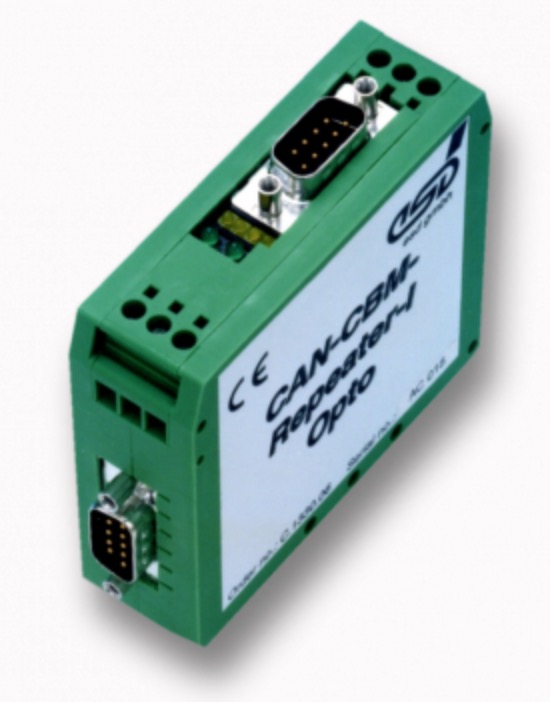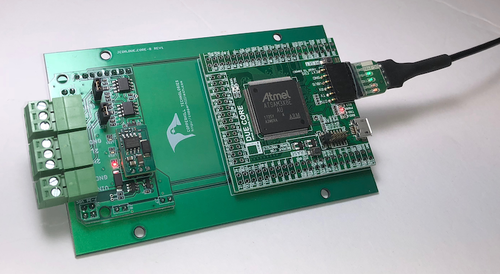Recent Posts
Passive I/Y CAN Bus Repeaters Improve CAN Bus Network Conditions
Posted by on
esd electronics announced their line of passive CAN Bus I- and Y-Repeaters. The I-Repeater improves the node capacity of a CAN Bus network or to insert electrical isolation, while the Y-Repeater creates a branch from one to two CAN Bus lines.
All of the repeaters' CAN Bus ports comply with ISO 11898, and each repeater is available without electrical isolation or with an electrically insulated interface.
The maximum transfer rate is 1 Mbit/s. The bit timing has to be the same for all connections. Each CAN Bus interface has a terminating impedance of 120 ohms inside the repeater.
The entire expansion and maximum bit rate of a CAN Bus network derive from the sum of the maximum lengths of subnetworks and Repeaters (eL). Only one repeater can be used per network.
The CAN Bus Repeater's power supply requires an external voltage in the range of 8 VDC to 30 VDC.
Total transparency and the perfect arbitration of the CAN object in all connected networks is guaranteed by the integrated fast logic.
Features
- Linking 2 or 3 CAN Bus networks
- With or without electrical isolation
- CAN Bus interface according to ISO 11898-2, bit rate up to 1 Mbit/s
- Compact top-hat rail module (DIN-EN rail mounting)
- Input power supply range: 8 VDC to 30 VDC
Arduino-Due-Based USB Gateway With Two CAN Bus Ports
The CAN Bus board incorporates dual CAN transceivers required by the two integrated CAN ports on the Arduino Due, i.e. they convert the CAN TTL signal into a differential voltage as required by the CAN Bus Standard (ISO 11898).
The Due Core is a microcontroller board based on Arduino Due, featuring the Atmel SAM3X8E ARM Cortex-M3 CPU.
The Due Core is a compact version of the Arduino DUE. It integrates all peripherals required for the MCU, and all GPIO are connected to 2.54mm connectors.
 Loading... Please wait...
Loading... Please wait...


